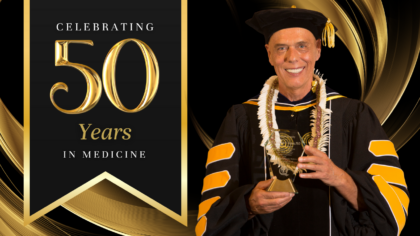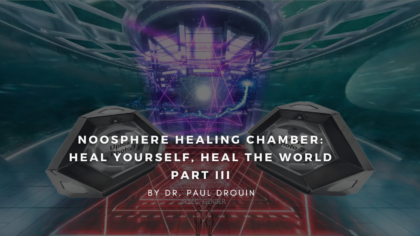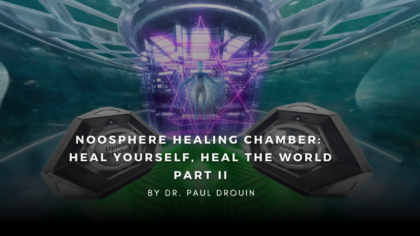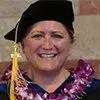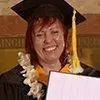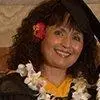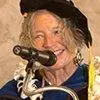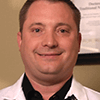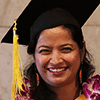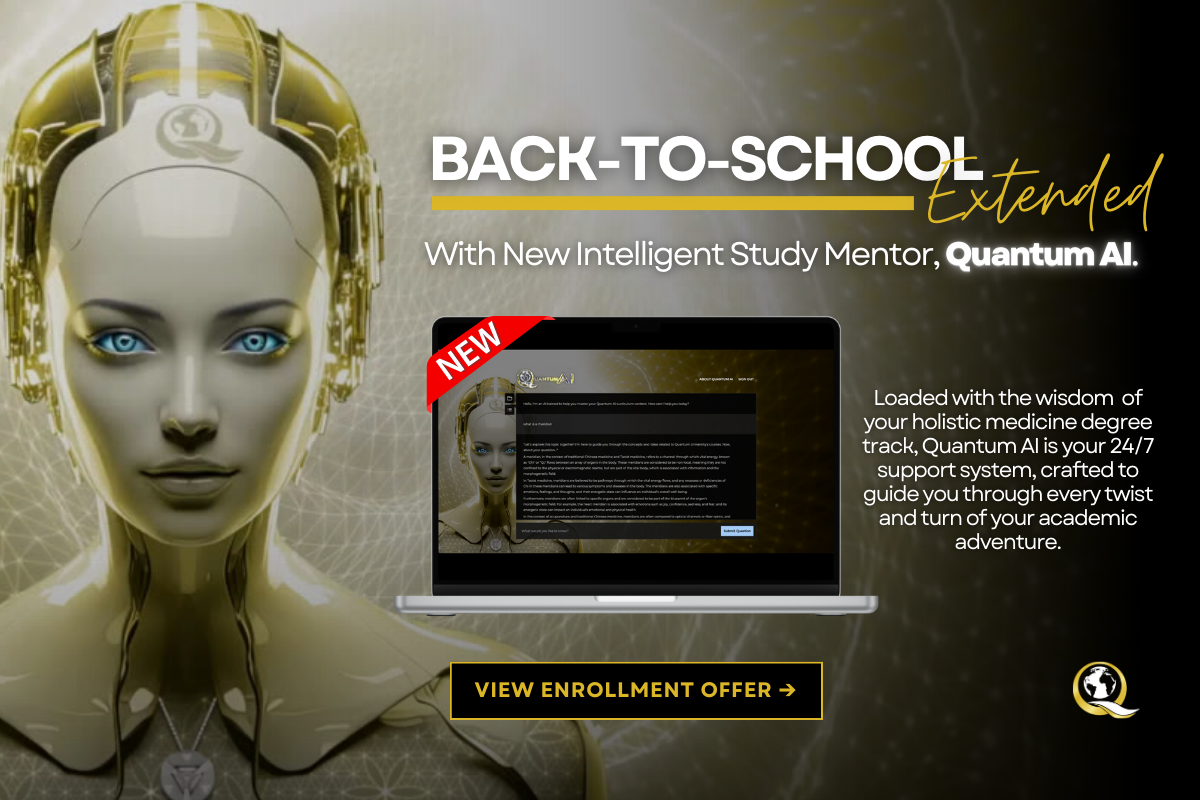Immersive Digital Medicine
By Dr. Paul Drouin, M.D., Founder and President, Quantum University
There is a game changer in every generation, something unexpected that alters the course of our cultural behavior, in this case our medical culture. Who would have imagined that the smartphone would profoundly transform many areas of our society, from our personal communications to the way we access information? The next decade is likely to see the implementation of digital technology in the monitoring of our health potential, shifting the focus from a medicine of disease to a medicine of wellness and health. (1)
Modern medicine is at an economic crossroads where we are doomed to contemplate two paths, neither of which addresses the real problem. At present, there is a furious debate raging in America about healthcare. Without going into the politics of the debate, I wonder whether we are really paying attention to the right questions.
I have been exposed to two different models of medicine during my medical career: a socialized system in Canada and a private insurance-based system in America. The real problem, no matter what our strategy for paying medical bills, is that neither system will be able to afford the continually rising costs of conventional medicine. (2)
What we should look at first is: How do we practice medicine? This article will explore one of the first steps: observation and evaluation of the client from a point of view of health, rather than disease.
Game Changer: How to Observe the Client
In this new model of medicine, the dynamic of looking at the client is shifted from a quest to identify what’s wrong with the patient (a disease model) to looking at what we can do to increase their health potential. When this process takes place, the responsibility and authority for healing are placed in the hands of the client, rather than the doctor, whereas in the conventional model, the balance of the power is in the hands of the doctor. This is what we call the democratization of medicine, where the client gains a greater awareness of all the factors that are engaged in their process of healing and entangled with a greater reality that is Consciousness.
Let’s look more closely at how the first step of evaluation can be integrated in a new healing relationship called Immersive Digital Coaching.
Sometimes great changes are initiated by a simple application. This is true of the implementation of smartphone technology in monitoring lifestyle habits and learning new behaviors, which can have tremendous consequences on the major risk factors in our society related to cardiovascular disease, degenerative diseases, cancer, and aging.
The main player in the new professional healthcare team will be the Quantum Health Coach.
Coaching has been present in wellness medicine for at least the last three decades.
Originally the coach listened to their clients and guided them to make the best choices. The second generation of coaches added nutrition and lifestyle to their guidance. The third generation will add another step to the process of mirroring to the client their own health status using biofeedback to measure what I call the parameters of health, such as brain coherence, heart rate variability, fitness, sleep, and nutritional vitality, to name a few. In other words, this is what I call “Scaling Health.”
As a medical doctor, science has provided me with lab tests, radiology expertise, and many other investigative tools to diagnose disease, but very few tools to guide my clients to total health. Can you imagine a medical doctor following a client for loss of weight who never regularly checks their weight or asks how they feel about their weight? By the same reasoning, Scaling Health is crucial to guiding the client toward their highest potential for health.
This is where smartphone technology comes into play. Today hundreds of sensors have been developed to feed back to the client information about their health and also to keep them motivated to achieve their optimal health destiny, with the guidance of a Quantum Health Coach.
Why a Quantum Health Coach (QHC)?
At Quantum University, a Quantum Health Coach (QHC) is trained both technically, to take advantage of these technologies and implement them, and also to have a greater awareness of the infinite possibilities of the human being through the scope of neuroscience and quantum physics.
The QHC also has the opportunity to pursue higher credentials as a Doctor/PhD in Integrative Medicine or Natural Medicine. The field of coaching is very diversified today and, in a few years, will require more credentials. Coaching to reach the full human potential requires greater knowledge and technical skills that can help to propel the client to their full potentiality.
What Are the Main Health Parameters to Track to Make a Difference?
This is a very critical question, since hundreds of different sensors have been developed in the last ten years. The strategy is to retain the few that can have the most impact on our health potential. Collecting too much feedback information may make a practical approach with clients impossible. Most clients will have no more than an hour or even half an hour a day to comply with a long-term daily routine. Spending 2-3 hours at a gym for fitness is not realistic for most of us. The best performance strategy requires minimal time to achieve the most health impact.
These are the four targets of interest:
- Brain Coherence: Mediation is the least expensive panacea that exists. (Over 600 scientific research studies conducted at more than 200 independent universities and research institutions in 30 countries have demonstrated the profound benefits of meditation.)(4)
- Heart Coherence: Developing HRV is proven to have the greatest impact on cardiovascular risk: reducing cholesterol, high blood pressure, heart attacks, etc.(5)
- Fitness and Sleep: Steps, walking, and exercising have been demonstrated to have tremendous benefits on health.(6)
- Nutrition: The vibrational frequency and vitality of food can also be tracked with apps. Vibrant, organic and healthy food is crucial for weight management and many degenerative diseases (diabetes, arthritis, and many others).
A Future Vision for Healthcare
This is a very exciting time to be alive. Out of what could be a medical catastrophe can emerge a more creative and humanistic way to become whole again. This approach allows the core foundation of health to be re-centered around the reality of the full potential of the individual, instead of focusing on disease. The individual will be able to re-appropriate the right to heal through costless and affordable technologies available to everyone on the planet.
The model of evaluating clients that I have explained in this blog will be supported by digital medicine. Preventive care will be shared with clients equipped with friendly technologies that can support a positive lifestyle and decrease traffic in the clinics. Going to the hospital will become a last resort after all other means of therapy have been exhausted.
What really matters is to finally look at the human being in terms of infinite possibilities, whereby the means of restoring health could also be infinite.
Interested in a new holistic health career? Unlock your potential as a healer and join the forefront of natural healthcare. Enroll in our natural, holistic, alternative, and integrative medicine degree programs now and start your journey towards making a positive impact in people’s lives.
References:
(1) Jeevannavar, S.S. (2016 May 12). Digital Health for All: Trends 2016-2020. [Image file]. https://www.linkedin.com/pulse/digital-health-all-trends-2016-2020-dr-maj-satish-s-jeevannavar
(2) Conover, C. (2012 Dec 22). The Cost of Health Care: 1958 vs. 2012. Forbes: Pharma & Healthcare. Retrieved from https://www.forbes.com/sites/chrisconover/2012/12/22/the-cost-of-health-care-1958-vs-2012/#2e43c2149106
(3) Drouin, P. (2014). Creative Integrative Medicine: A medical doctor’s journey toward a new vision for healthcare. Independently Published, ISBN-13: 978-1075282577.
(4) Brain Coherence:
- Arias, A.J., Steinberg, K., Banga, A., Trestman, R.L. (2006). Systematic Review of the Efficacy of Meditation Techniques as Treatments for Medical Illness. J Alt & Compl Med, 12(8):817-832. doi:10.1089/acm.2006.12.817
- Borchard, J., and Teasdale, T. (2014). The Mindful Way Workbook. The Guilford Press New York
- Glover, V. (1997). Maternal Stress or anxiety in pregnancy and emotional development of the child. Br J Psychiatry, 171:105-6
- Hoge, E. A., Bui, E., Goetter, E., Robinaugh, D. J., Ojserkis, R. A., Fresco, D. M., & Simon, N. M. (2015). Change in decentering mediates improvement in anxiety in mindfulness-based stress reduction for generalized anxiety disorder. Cognitive Therapy and Research, 39(2):228-235. doi: http://dx.doi.org/10.1007/s10608-014-9646-4
- Hoge, E.A, Bui, E., Palitz, S.A., Schwarz, N.R., Owens, M.E., Johnston, J.M., Pollack, M.H., & Simon, N.M. (2017). The effect of mindfulness meditation training on biological acute stress responses in generalized anxiety disorder, Psychiatry Research, ISSN 0165-1781, http://dx.doi.org/10.1016/j.psychres.2017.01.006
- Hölzel, B.K., Carmody, J., Evans, K.C., Hoge, E.A., Dusek, J.A., Morgan, L, Pitman, R.K., & Lazar, S.W. (2010). Stress reduction correlates with structural changes in the amygdala. Social Cognitive and Affective Neuroscience; 5(1):11-17. doi: 10.1093/scan/nsp034
- Hölzel, B. K., Hoge, E. A., Greve, D. N., Gard, T., Creswell, J. D., Brown, K. W., . . . Lazar, S. W. (2013). Neural mechanisms of symptom improvements in generalized anxiety disorder following mindfulness training. NeuroImage. Clinical, 2:448-458. doi: 10.1016/j.nicl.2013.03.011I
- Kaul, P., Passafiume, J., Sargent, C.R., O’Hara, B.F. (2010 Jul 29). Meditation acutely improves psychomotor vigilance, and may decrease sleep need. Behav Brain Funct. doi: 10.1186/1744-9081-6-47
- Lutz, A., Greischar, L. L., Rawlings, N. B., Ricard, M., and Davidson, R. J. (2004) Long-term meditators self-induce high-amplitude gamma synchrony during mental practice. PNAS, 101(46) 16369-16373; published ahead of print November 8, 2004, doi:10.1073/pnas.0407401101
- Marcus, M. T., & Zgierska, A. (2009). Mindfulness-Based Therapies for Substance Use Disorders: Part 1 (Editorial). Substance Abuse: Official Publication of the Association for Medical Education and Research in Substance Abuse, 30(4), 263. http://doi.org/10.1080/08897070903250027
- Star, Katharina, PhD. http://panicdisorder.about.com/. 1 February 2015.
- Zgierska, A., Rabago, D., Chawla, N., Kushner, K., Koehler, R., & Marlatt, A. (2009). Mindfulness Meditation for Substance Use Disorders: A Systematic Review. Substance Abuse: Official Publication of the Association for Medical Education and Research in Substance Abuse, 30(4), 266–294. http://doi.org/10.1080/08897070903250019
(5) HRV:
- Davies, S. (2014 Apr 12). Heart Rate Variability Training and Why You Should Be Doing It. Bionic.ly Innovations in Health. https://bionic.ly/heart-rate-variability-training-and-why-you-should-be-doing-it/
- Dekker, J.M., Crow, R.S., Folsom, A.R., Hannan, P.J., Liao, D., Sweene, C.A., and Schouten, E.G. (2000 Sep 12). Low Heart Rate Variability in a 2-Minute Rhythm Strip Predicts Risk of Coronary Heart Disease and Mortality From Several Causes, The ARIC Study. Circulation, 102(11). Retrieved from http://circ.ahajournals.org/content/102/11/1239
- The ARIC Study. Circulation, 102 (11). Retrieved from http://circ.ahajournals.org/content/102/11/1239
- Fang, S.-C., Wu, Y.-L., & Tsai, P.-S. (2020). Heart Rate Variability and Risk of All-Cause Death and Cardiovascular Events in Patients With Cardiovascular Disease: A Meta-Analysis of Cohort Studies. Biological Research For Nursing, 22(1), 45–56. https://doi.org/10.1177/1099800419877442
(6) Exercise:
- Harvard Men’s Health Watch (2018 Jul 18). Walking: Your steps to health. Harvard Medical School. Retrieved from https://www.health.harvard.edu/staying-healthy/walking-your-steps-to-health
- Mayo Clinic Staff. (2019 Feb 17). Walking: Trim your waistline, improve your health. Retrieved from https://www.mayoclinic.org/healthy-lifestyle/fitness/in-depth/walking/art-20046261
- Wolff, C. (2018 Aug 21). 76 Ways Getting Your Steps In Actually Benefits Your Health. Bustle. Retrieved from https://www.bustle.com/p/what-does-getting-your-steps-in-actually-do-for-your-health-7-benefits-of-walking-each-day-10148556
- Arthritis Foundation. (n.d.). The Benefits of Walking. Retrieved from https://www.arthritis.org/health-wellness/healthy-living/physical-activity/walking/12-benefits-of-walking
- Rabbitt, M. (2020 Jul 15). 11 Biggest Benefits of Walking to Improve Your Health, According to Doctors. Retrieved from https://www.prevention.com/fitness/a20485587/benefits-from-walking-every-day/









